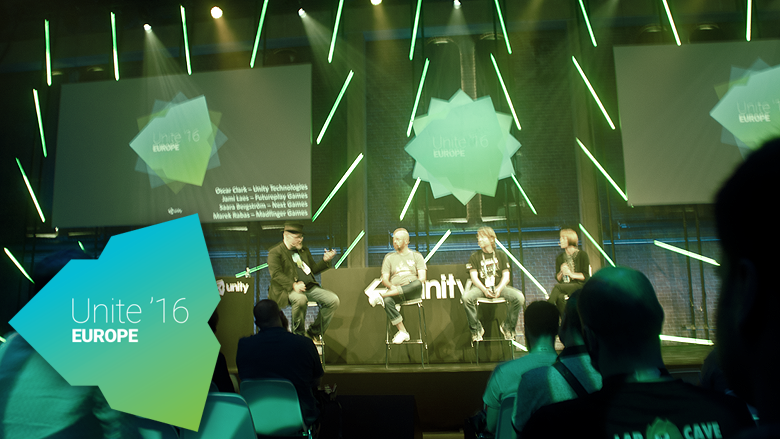Unite Europe 2016: "If you completely turn off advertising, then IAPs also decrease"
How to “squeeze” the maximum out of video advertising and what mistakes should be avoided? Oscar Clark, Unity evangelist, discussed this issue with developers at the Unite Europe 2016 conference.

In addition to Clark, the discussion was attended by Jamie Laes from Futureplay, the head of MADFINGER Marek Rabas and Saara Bergström, head of marketing and communications at Next Games.
Jami Laes is convinced that the future of monetization lies with the view-to-play format. He voiced the opinion that it is easier for users to accept this model, since they are not required to spend money – they only need views. According to Laes, monetization is a key moment in the creation of the game. When you create a concept, you need to think about advertising first. He suggested from the very beginning to ask the question – will advertising destroy the gaming experience? How will advertising help the player?
Marek Rabas disagreed with Laes. He believes that just such an approach harms the gaming experience. “You can’t think about advertising in the first place. In the first place is the game. If the game sucks, then no one will watch the ads. The game is not built around monetization, it is monetization embedded in the game,” he said.
Rabas noted that it is important to find a balance in advertising. If you give too many videos, the game will become too easy, which will also spoil the player’s experience.
Saara Bergstrom added that a complete shutdown of advertising is also not an option. From her experience, it follows that if you turn off advertising altogether, the revenue from IAP decreases. “Users are losing the desire to buy,” she shared.
Laes noticed that it is easy to spoil the gaming experience not only if you overdo it with advertising, but also if you choose the wrong moment for it. “You should never advertise when a player loses,” he said.
Oscar Clark agreed with this opinion. “If you look from the point of view of psychology, positive reinforcement will make the player want to play on,” he said.
Saara Bergstrom also supported this opinion. She said that in one of the Next Games, at the end of the mission, the player is given a reward to choose several cards. And if he watches the ads, he will get more of these cards. “Positive reinforcement is a very powerful tool. Everything is tied to emotions. This also applies to advertising,” she shared.
“Yes, it’s like going to a restaurant,” Marek agreed. – If you come to a restaurant and they smile at you, then you will come again. The same thing happens with advertising in games.”
The developers agreed that you need to put yourself in the player’s place and understand exactly why he needs to watch ads.
“It is necessary that the player wants to watch the advertisement himself. For example, we have created exclusive content for advertising in the Walking Dead. And people liked it. And advertising revenue has grown,” she concluded.
You will be able to learn about the latest trends in the gaming industry first-hand, personally meet and discuss working issues with leading companies in the game development and publishing market at White Nights St. Petersburg 2016, which will be held on June 28-29.